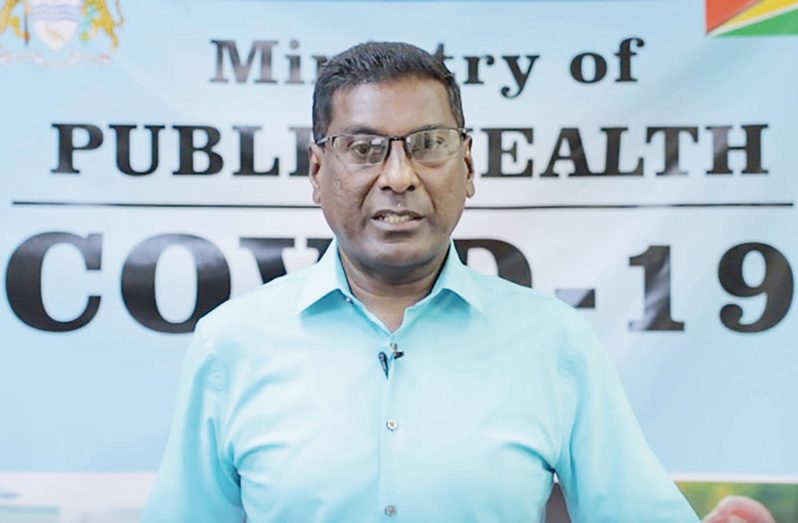By Vishani Ragobeer
AN increasing number of young men have been losing their lives to heart attacks, pointing to the prevalence of underlying conditions, according to outgoing Chief Medical Officer (CMO), Dr. Shamdeo Persaud.
Dr. Persaud, Guyana’s CMO since 2007, highlighted that over his tenure, the general age for heart attacks, observed primarily in men, had dropped significantly from persons in their 60s to persons in their 50s. Nowadays, he said, persons have been suffering from this fatal condition as early as their late 20s.
“Young men just drop down and die from heart attacks, which was kind of unheard of before,” Dr. Persaud lamented during a recent interview with Guyana Chronicle.
This occurrence points to the prevalence of underlying conditions for Non-Communicable Diseases (NCDs), Dr. Persaud explained. Exacerbating this situation, according to the CMO, is that many persons have these underlying conditions, but the health conditions may go undetected for a number of years because persons do not engage in regular medical checkups and screenings.
These NCDs- such as diabetes, heart diseases, and cancers, account for about 70 per cent of deaths in Guyana, according to the Pan-American Health Organisation (PAHO). Last year, Head of Medical Services at the Georgetown Public Hospital Corporation (GPHC), Dr. Mahendra Carpen, related that 30 per cent of patients who go to the hospital for emergency health care, due to a heart attack, for example, only then realise that they are also diabetic.
Regular health checkups could have revealed these underlying conditions earlier, and perhaps even prevented those emergencies.
Reflecting on his career so far, Dr. Persaud related that there are many public health issues that the country has become better equipped to manage, reduce, and even prevent, however, the “big challenge” that remains is the prevalence of the NCDs and the underlying conditions which go undetected for years.
“Something is driving these concerns,” he said, adding, “The access to medical care is better and we are able to diagnose more comprehensively but I still think there is something else driving this.”
Though further investigations would be required to determine definitively what contributes to this concerning issue, Dr. Persaud opined that it may be the “behavioural aspect” of people.
Dr. Persaud emphasised that individuals must be more appreciative of good health practices that have been known to contribute to good health, overall. These practices include eating healthy meals, exercising regularly, and reducing alcohol consumption. The World Health Organisation (WHO) attributed the rise of NCDs, worldwide, to four major risk factors: tobacco use, physical inactivity, the harmful use of alcohol, and unhealthy diets.
COVID-19
But what complicates matters even further is that the prevalence of these underlying conditions increases an individual’s vulnerability to the novel coronavirus, COVID-19.
“With COVID-19, we have seen the impact of the underlying conditions, especially, and I think again in men, younger men,” Dr. Persaud said.
The WHO and the Centre for Disease Control and Prevention both indicated that older folks and later, older folks with pre-existing, underlying health conditions, were more vulnerable to contracting this coronavirus, thus becoming severely ill. Younger folks, who were more likely to be asymptomatic (infected with the virus, but not showing any symptoms), were cautioned that they might be “carriers”- spreading the disease to other, older folks.
Here in Guyana, the public health authorities have been concerned that the increasing vulnerability of persons to NCDs coupled with the prevalence of these underlying conditions have been contributing to the prevalence of COVID-19 in younger persons and men.


.jpg)











